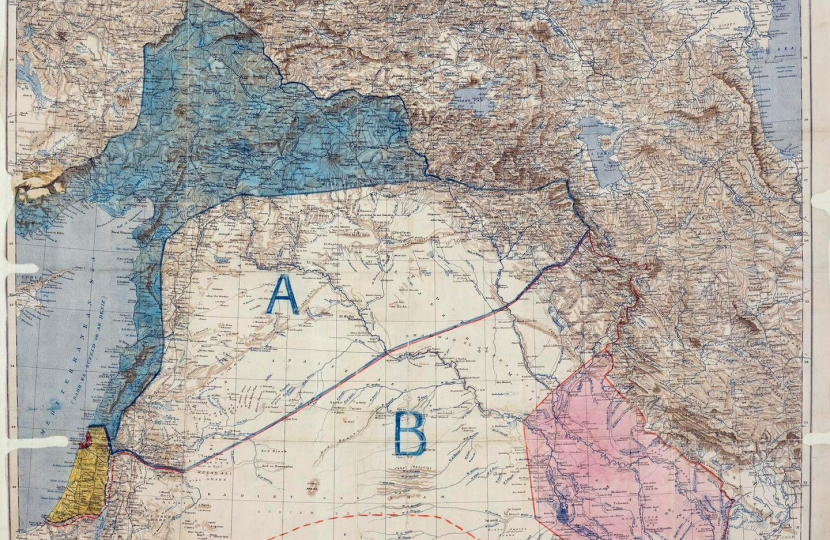
To understand the horror of an aspect of modern warfare just look at Gaza. Whether it is rockets from above or shells from tanks; whether it is small arms fire or explosive devices; the horrors of war have been inflicted on civilians in Gaza.
The asymmetry of this war leads to dramatically different images but the horror felt by those innocent civilians on either side will be the same.
What part of Israel’s response to the Hamas led invasion of Israel on 7th October surprises anyone? From the most secular Zionist to the most religious fundamentalist – on either side, to your average Brit or anyone else, everyone knew that Israeli Government and people would respond in the way they did.
What response would the Hamas leadership expect whether it is those living in Gaza or in luxury elsewhere? That the Israeli police and military would clear Hamas out of Israel and then head over to Geneva for peace talks, negotiate the return of hostages and an agreement not to do it again?
What is a proportionate response?
Many seem to believe it to equate to a life for a life but it is not.
If someone attacks you, threatens your life and those of your family and friends then a civilised response it to put that attacker in a position where he can no longer threaten death and destruction against you and yours. Nation States have the same ethical expectations and demands as individuals and families but with obviously different capabilities.
Who started it and who has right on their side?
Well, if I could make a compelling argument on this then make me the UN Secretary General and give me the powers to compel and enforce peace.
We cannot unpick hundreds of years of history or even the decades since 1948. It is not the job of the British Government or a backbench Member of Parliament to do so. You would imagine that we could resolve every global conflict if we could resolve this one.
It is for us, in the context of the international community, to work for what peace can be found, help repatriate hostages and give humanitarian aid. The Prime Minister and his Foreign Secretary have, along with other heads of government and foreign ministers, been engaging in the normal diplomacy that is used to reduce conflict and bring about peace. This has, at every step of the way, been wholly supported by the leader of the Labour Party and his foreign affairs team.
Members of Parliament have worked to understand the concerns of their constituents and to convey those thoughts and feeling to ministers and the Prime Minister. This is why I so actively talk to my constituents and read their letters.
I attended and spoke at a peace vigil in Manchester with the Chief Rabbi, Mayor of Greater Manchester and politicians on the left and right. It did not and could not bring peace but it was right for elected politicians to be there to understand the fears and concerns of local people.
The Bolton Council of Mosques invited the three local MPs to attend a meeting so that all BCoM’s individual mosque representatives could share the perspectives of the Muslim community in Bolton of the ongoing war and humanitarian crisis in Gaza.
There are a few fundamental parts of the political calendar that stand apart from the normal debates and votes. The Budget and King’s Speech set the Government agenda and are challenged by the opposition. Unlike with most votes in Parliament, if any rebels and the opposition defeat the Government then it falls and a General Election follows. Opposition Party’s know this to be a basic and essential part of our Parliamentary democracy and play politics accordingly.
Labour and the SNP both tabled amendments to the recent King’s Speech as the opposition Parties always do. Typically, votes in Parliament are used to determine such things as the retention of the Triple Lock for pensions that we secured at the Autumn Statement. The SNP sought to use the vote on their amendment to deliver peace in the Middle East or so it superficially seemed.
There was a substantial amount of pressure on MPs all around the country to vote for the SNP amendment including upon me. I have always put my constituents in Bolton West first so I am prepared to rebel and challenge the Government but I have to ask myself what will be achieved.
Who would believe that a rebellion on the SNP amendment to deliver a ceasefire between the Israeli government and Hamas would have actually delivered peace or even taken one step towards it?
I asked constituents demanding that I support the SNP amendment if it would have any impact or if it would save even one life if the whole British Government and Parliament had voted for it. They said that it would not, they said that it would have no effect but that I should still do it.
My judgement goes a little beyond the narrow but important demand for a ceasefire. I know that it would have the effect of pushing Israel incrementally closer to having a pariah status whilst it would have no effect on Hamas whom the British State regard as a terrorist organisation.
To have a ceasefire and peace, both sides have to come to the table and negotiate. Following the slaughter of 7th October, how can the British Parliament compel peace on both sides with equal impact?
The person that the British Parliament would be compelling Israel to negotiate with, Hamas’ Gazan leader, Yahya Sinwar, who said “The leaders of the Occupation – Israel - should know, October 7th was just a rehearsal”.
War is repugnant; Israel killing civilians is repugnant; Palestinians killing Israelis is repugnant.
Gesture politics is often an unpleasant virtue signal without the virtue.
A pause in hostilities has been secured and many hostages and prisoners have been returned home. I pray for a long-term peace and know that I cannot vote to impose it.
I always seek to understand the views and values of my constituents and take those concerns up with the Government the best that I can. I have set out my understanding and approach as far as a few brief essays, including this final one, can and will look forward to hearing from you as others negotiate the best outcome that they can.


